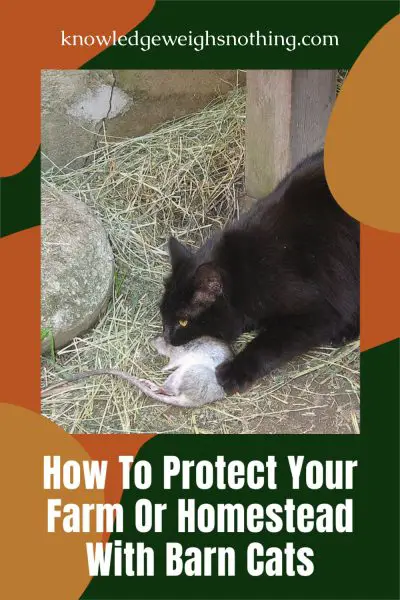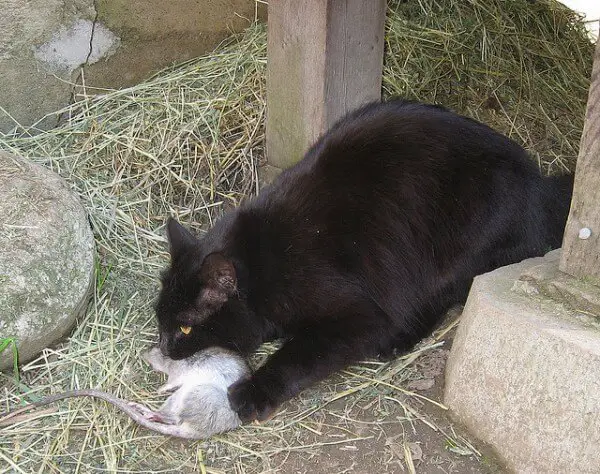
For thousands of years, our feline friends have made their mark within civilization. Whether revered as mystical creatures or adored for their fun-loving attitudes, there’s no denying the importance of cats in one fashion or another. However, as you set out to cultivate a successful homestead you may be surprised these four-legged family members provide more than hours of entertainment. In fact, these common household pets directly influence the success of many homesteads throughout the world.
As you’ve likely already discovered, many rural environments are inhabited by rats, field mice, moles, ground squirrels and many other rodents capable of completely ruining gardens, livestock feed and your own food stores. Along with wrecking havoc on the productivity of your garden, many rodents carry disease within their fecal matter, which can prove disastrous for your family’s health or the vitality of your livestock. Therefore, one of the most important steps in fostering a healthy and fruitful homestead is reducing the proliferation of these pests.
Table of Contents
ToggleRodent Control Without Harmful Chemicals
One of the most popular methods of eliminating rodents is through poisonings and other toxic chemicals. With its effectiveness comes real danger. From accidental livestock poisoning to introducing inorganic compounds into the environment, commercial rodent control methods are costly and environmentally harmful.
A Natural – And Adorable – Pest Control Method
Instead of relying on the aforementioned compounds and chemicals, the most effective way to keep the rodent population throughout your homestead under control is through barn cats. While you may think barn cats are a special breed of felines, they can be almost any domesticated cat. The best part? Barn cats are practically self-sufficient. Many thrive on eating the rodents they kill and enjoy a happy life as they’re capable of connecting with their instincts.
Tips for Raising Barn Cats
The following five tips are fundamental tips to raising healthy and happy barn cats:
- It Starts With a Kitten – When it comes to barn cats, it’s important to cultivate a deep bond to ensure they do not wander away. Therefore, many homesteading professionals recommend raising them from kittens.
- Mamma Barn Cat – While some cats have stronger instincts than others, the most successful barn cats are born and partially raised by a mother barn cat. If you can, connect with a local farmer or other homesteader for a genuine barn cat. If not, you may end up with lazy housecats who simply enjoy the freedom of sleeping in piles of hay.
- Foster Their Boundaries – During the first several weeks, make sure to keep the cats in a secured area. Keep a litter box and food in their sleeping quarters to secure this area as their home. After several weeks of being secured in a barn stall, they’ll know where home is.
- Feed Your Cats – While some cats live solely off their prey, do not allow this to be their sole food source. Provide your cats with food each day. This ensures they remain healthy while further solidifying their home boundaries.
- Maintain Cat Health – Do not simply throw a few cats in a barn and call it a day. Make sure to vaccinate all cats, especially for rabies. Barn cats should be dewormed and taken to the vet every few months to ensure they’re healthy and happy. Additionally to keep your cats flea free, see our post on flea home remedies.





